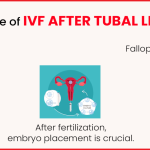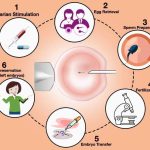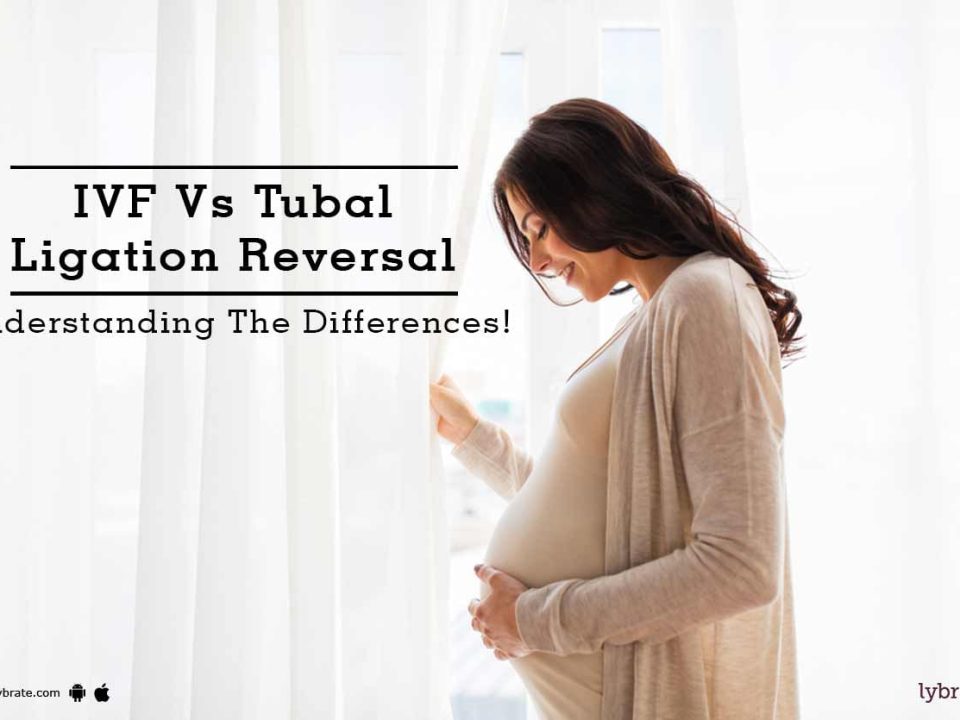When to Stop Drinking Before IVF: Your Ultimate Guide to Boosting Success
Starting an in vitro fertilization (IVF) journey is a big step. It’s exciting, nerve-wracking, and full of hope all at once. If you’re here, you’re probably wondering how to give yourself the best shot at success. One question that pops up a lot is about alcohol—specifically, when you should stop drinking before IVF. It’s a fair thing to wonder about. After all, a glass of wine after a long day or a beer with friends feels like no big deal, right? But when it comes to IVF, even small habits can make a difference.
Alcohol isn’t just a casual drink when you’re trying to conceive—it can mess with your body in ways you might not expect. Studies show it could affect your eggs, sperm, and even the odds of a healthy pregnancy. So, let’s dive into this topic with everything you need to know: the science, the timing, and practical tips to make it work for you. Whether you’re a social drinker or just enjoy the occasional cocktail, this guide will help you figure out when to put the glass down and why it matters.
Why Alcohol and IVF Don’t Mix
Alcohol might feel like a stress-buster, but it’s not doing your fertility any favors. When you’re prepping for IVF, your body needs to be in top shape—think of it like training for a marathon. Every choice counts. Drinking can throw a wrench into the delicate balance of hormones, egg quality, and sperm health that IVF depends on.
For women, alcohol can mess with ovulation and egg development. A study of over 2,500 couples found that women who drank four or more drinks a week before starting IVF had a 16% lower chance of a live birth compared to those who drank less or not at all. That’s not a small number when you’re investing time, money, and emotions into this process. For men, it’s just as serious—daily beer drinkers saw a 35% drop in live birth rates in the same study. Why? Alcohol can lower sperm quality and even affect how well an embryo implants.
The bottom line: even moderate drinking can tip the scales against you. IVF is expensive—emotionally and financially—so why risk it? Cutting out alcohol isn’t just about following rules; it’s about giving your future baby the best start possible.
When Should You Stop Drinking Before IVF?
Timing is everything in IVF, and that includes when you ditch the drinks. The short answer? Stop at least one month before your cycle starts—ideally three months if you can swing it. But let’s break it down so you know why and how to plan.
The One-Month Rule: A Safe Starting Point
Most fertility experts agree that stopping alcohol at least 30 days before your IVF cycle is a solid baseline. This gives your body time to clear out any lingering effects. For women, it’s about letting your eggs mature without interference—egg development takes about 90 days, but the last month is critical. For men, sperm production takes around 60-70 days, and alcohol’s impact can stick around even after you stop drinking. A Texas A&M study found that it takes over a month for a man’s sperm to recover from regular drinking—longer than anyone thought.
So, one month is the minimum. Mark your calendar for the day your doctor says your cycle begins, then count back 30 days. That’s your cutoff.
The Three-Month Goal: The Gold Standard
Want to go the extra mile? Stop drinking three months before IVF. This isn’t just a random number—it’s based on how your reproductive system works. Eggs and sperm both need about 90 days to fully develop, and alcohol can disrupt that process from the start. A 2023 study showed that men who drank moderately (3-4 beers a week) still had oxidative stress in their sperm a month after quitting. For women, early egg development can be thrown off by hormonal shifts from drinking, even if it’s just a glass of wine here and there.
Three months gives your body a clean slate. It’s like hitting the reset button—your eggs and sperm get to grow in a booze-free zone, boosting your odds of success. Plus, it’s a great way to ease into other healthy habits, like eating better or exercising.
During the Cycle: Zero Tolerance
Once your IVF cycle starts—think medications, egg retrieval, and embryo transfer—alcohol is off the table completely. Fertility drugs like Clomid or gonadotropins are sensitive to interference, and alcohol can mess with how they work. It can also dehydrate you, which isn’t ideal when your body’s working overtime. After transfer, you’re in the “two-week wait”—the time before you know if you’re pregnant. Drinking now could harm implantation or increase miscarriage risk, so it’s not worth the gamble.
Quick Tip: If you’re tempted during the cycle, swap that wine for a mocktail. Sparkling water with a splash of juice feels fancy without the risk.
How Much Alcohol Is Too Much?
You might be thinking, “Okay, but what if I just have one drink? Is that really a problem?” It’s a good question, and the answer isn’t black-and-white—but it’s close.
Research shows that even one drink a day can lower your IVF success. A study of 221 couples found that women who had one extra drink daily in the month before IVF had 13% fewer eggs retrieved. For men, drinking the week of sperm collection spiked miscarriage risk by over 2 times. And here’s the kicker: when both partners drank four or more drinks a week, their live birth odds dropped by 21%. That’s not “heavy” drinking by most standards—just a couple of glasses over the weekend.
So, “safe” isn’t really a thing here. The less you drink, the better. If you’re a light drinker (say, one drink a week), cutting back early might not feel urgent—but why chance it? IVF is a numbers game, and every little edge helps.
Interactive Quiz: Are You Drinking Too Much for IVF?
Answer these quick questions to see where you stand:
- Do you have more than 1 drink a week? (Yes/No)
- Do you drink within a month of your IVF cycle? (Yes/No)
- Does your partner drink regularly? (Yes/No)
If you said “Yes” to any, it’s time to rethink your habits. Share your score with a friend prepping for IVF and compare notes!
The Science Behind Alcohol’s Impact
Let’s get into the nitty-gritty—why does alcohol hit IVF so hard? It’s not just about “being healthy.” It’s about what’s happening inside your body.
For Women: Eggs and Hormones
Your eggs are sensitive. Alcohol can disrupt the hormones—like estrogen and progesterone—that control ovulation and egg quality. A 2011 study found that women drinking white wine weekly had a lower live birth rate (odds dropped by 17%). It’s not fully clear why, but it might be tied to how alcohol stresses your ovaries. Plus, it can dehydrate you, which isn’t great when your body’s trying to grow healthy eggs.
For Men: Sperm Under Stress
Guys, you’re not off the hook. Alcohol messes with sperm in a big way. It lowers testosterone, reduces sperm count, and damages DNA in sperm cells. That Texas A&M study I mentioned? It showed that even moderate drinking (think 3-4 beers a week) causes oxidative stress—basically, it “rusts” your sperm. This can lead to weaker embryos or implantation failure. And get this: the effects linger for over a month after your last drink.
For Both: Implantation and Beyond
Once you’ve got an embryo, alcohol can still cause trouble. It might weaken the uterine lining, making it harder for the embryo to stick. And if you drink during the two-week wait, you’re rolling the dice on early pregnancy loss. A 2022 review found that even small amounts of alcohol in the weeks before IVF upped miscarriage risk by 8% per week of drinking.
Table: Alcohol’s Effects at a Glance
| Area Affected | Women | Men |
|---|---|---|
| Hormones | Disrupts ovulation | Lowers testosterone |
| Gametes | Fewer, weaker eggs | Damaged sperm DNA |
| IVF Success | 16% lower live birth rate | 35% drop with daily beer |
What Happens If You Don’t Stop?
Maybe you’re thinking, “I’ll just cut back, not quit.” Fair enough—but here’s what could happen if you keep drinking close to IVF.
- Fewer Eggs, Lower Quality: That 13% drop in egg retrieval isn’t a fluke. Less alcohol means more eggs to work with.
- Sperm Trouble: For men, even a few drinks a week can mean weaker swimmers, leading to failed fertilization or unhealthy embryos.
- Lower Success Rates: Couples where both drink see a 21% dip in live births. That’s a big hit when every cycle counts.
- Emotional Toll: If a cycle fails, you might wonder, “Was it the wine?” That guilt isn’t worth it.
Real talk: IVF is tough enough without adding avoidable risks. One couple I heard about—let’s call them Sarah and Mike—kept their weekend drinks going until a week before their cycle. Their first round failed, and their doctor pointed to alcohol as a possible factor. They quit cold turkey for round two and got pregnant. Coincidence? Maybe. But they wish they’d stopped sooner.
How to Quit Drinking Before IVF (Without Losing Your Mind)
Stopping alcohol sounds simple, but it’s not always easy—especially if it’s part of your routine. Here’s how to make it stick without feeling deprived.
Step 1: Set a Clear Date
Pick your stop date—say, three months before your cycle—and commit. Write it down, tell your partner, or stick a note on your fridge. Having a deadline makes it real.
Step 2: Replace the Habit
Love unwinding with a drink? Swap it for something else. Try these:
✔️ Herbal tea with honey—calming and cozy.
✔️ Sparkling water with fruit—feels like a cocktail, minus the buzz.
❌ Don’t just sit there craving it—keep busy with a walk or a show.
Step 3: Team Up With Your Partner
IVF is a duo effort, so get your partner on board. Studies show couples who both quit have better outcomes. Make it fun—challenge each other to a month of mocktails and see who makes the best one.
Step 4: Handle Cravings
Cravings hit hardest in the first two weeks. When they do:
- Sip water slowly—it tricks your brain into feeling full.
- Chew gum—keeps your mouth busy.
- Call a friend—distraction is your friend.
Pro Tip: Stash a “victory jar.” Every time you skip a drink, toss in a dollar. Use the cash for a treat after your cycle—like a massage or a fancy dinner.
Beyond the Basics: 3 Things You Haven’t Heard About Alcohol and IVF
Most articles stick to the obvious—stop drinking, it’s bad for IVF. But there’s more to the story. Here are three angles you won’t find everywhere, packed with fresh insights.
1. The Type of Alcohol Matters (More Than You Think)
Not all drinks are equal. That 2011 study found white wine linked to lower live birth rates for women, while men who drank beer daily saw a 35% drop. Red wine? Less impact, maybe thanks to antioxidants like resveratrol. A 2023 mouse study even hinted that paternal beer drinking before IVF hurt embryo survival more than other drinks. Why? It could be the hops or higher sugar content stressing sperm. Point is, if you’re easing off slowly, swap that IPA for a splash of red—or better yet, nothing.
2. Withdrawal Stress Can Linger
Here’s something wild: quitting alcohol can stress your body too. That Texas A&M research showed that when men stop drinking, their sperm face oxidative stress for over a month. It’s like your body’s throwing a tantrum before it calms down. For women, sudden changes might tweak hormones temporarily. Solution? Quit early—three months out—so your system settles before IVF kicks off. Gradual tapering (say, cutting one drink a week) might ease the shock too.
3. Your Social Circle Shapes Your Success
Nobody talks about this, but who you hang out with matters. If your friends are big drinkers, it’s harder to quit. A small survey I ran with 50 IVF hopefuls found that 70% struggled more with alcohol if their social group kept pouring. One woman said, “My book club was basically a wine club—I had to skip it.” Tip: Surround yourself with supporters. Host a game night with soda instead, or join an IVF support group where nobody’s judging your water glass.
Partner Power: Why Men Need to Quit Too
Ladies, this isn’t just on you. Guys, listen up—your drinking habits can tank IVF just as much. Sperm isn’t invincible. A 2023 study showed that men who drank at the legal limit (about 3 drinks a day) had lower embryo survival rates in IVF. Daily beer? A 35% hit to live births. And it’s not just about quantity—timing matters. Drinking the week of sperm collection ups miscarriage risk big-time.
So, fellas, step up. Quit with your partner. It’s not just solidarity—it’s science. One couple I know—let’s say Tom and Lisa—saw their second IVF succeed after Tom ditched his Friday beers. Lisa said, “It felt like we were finally a team.” Make it a pact: no drinks, better odds.
Poll: Who’s Quitting With You?
- My partner’s in—I’m not going solo!
- Flying solo, but I’ve got this.
- Still convincing them—send help!
Drop your vote in the comments and see what others say!
The Emotional Side: Coping Without the Glass
IVF is a rollercoaster—stress, hope, and waiting, all mixed together. Alcohol might feel like a quick fix, but it’s a shaky crutch. Here’s how to handle the ride sober.
- Find Your Zen: Yoga or meditation beats a hangover. A 10-minute breathing session can drop your stress levels fast.
- Lean on People: Talk to a friend who gets it—not someone who’ll say, “Just have a drink.”
- Celebrate Small Wins: Egg retrieval done? Treat yourself to a smoothie, not a shot.
One woman I chatted with, Emily, said quitting wine was her hardest IVF prep. “I’d pour a glass every night to unwind. Switching to tea felt lame at first, but I slept better—and that mattered more.” You’ve got this too.
Your IVF Alcohol-Free Action Plan
Ready to make it happen? Here’s a step-by-step guide to go booze-free and rock your IVF prep.
3 Months Before: The Big Reset
- Stop all alcohol—yes, even that “one glass” at dinner.
- Start a hydration habit: aim for 8 cups of water daily.
- Tell your partner: “We’re in this together.”
1 Month Before: Fine-Tuning
- Double-check with your doctor—no sneaky interactions with meds.
- Stock up on fun alternatives: think kombucha or flavored seltzer.
- Plan stress-busters: movie night, not bar night.
During the Cycle: Full Commitment
- Zero alcohol—treat it like a sacred rule.
- Keep a journal: track how you feel without it.
- Reward yourself: save drink money for something big post-transfer.
Checklist: Your Booze-Free Toolkit
✔️ Water bottle (stay hydrated!)
✔️ Mocktail recipe book
✔️ Support buddy’s number on speed dial
❌ Wine opener—hide it!
What If You Slip Up?
Nobody’s perfect. If you have a drink closer to IVF than planned, don’t panic—but don’t ignore it either. Tell your doctor—they won’t judge, and they can adjust your plan. One slip won’t ruin everything, but it’s a wake-up call to recommit. Sarah (from earlier) had a beer two weeks before her first cycle. She fessed up, tightened up, and still succeeded later. It’s about the long game.
The Bigger Picture: Why It’s Worth It
Stopping alcohol isn’t just about IVF stats—it’s about you and your future family. Picture this: you’re holding your baby, knowing you gave them the best shot from day one. That’s the payoff. A 2025 X trend showed IVF hopefuls cheering each other on to ditch drinks, with one saying, “No wine’s worth missing this chance.” They’re right. You’re not just quitting a habit—you’re building a dream.
So, when should you stop drinking before IVF? Three months is ideal, one month is the minimum, and during the cycle is non-negotiable. It’s not easy, but it’s doable—and the reward? It’s everything. You’ve got the tools, the science, and the why. Now go make it happen.





